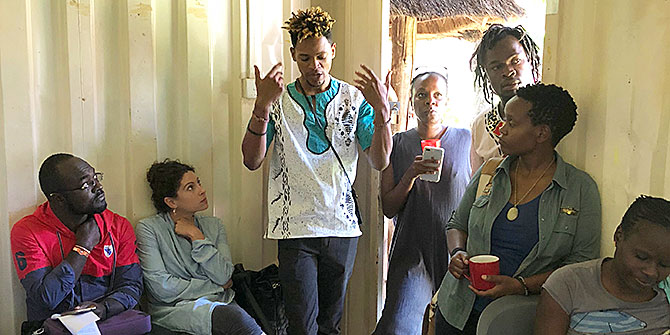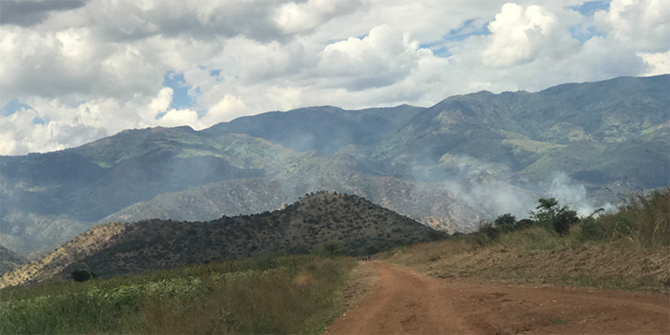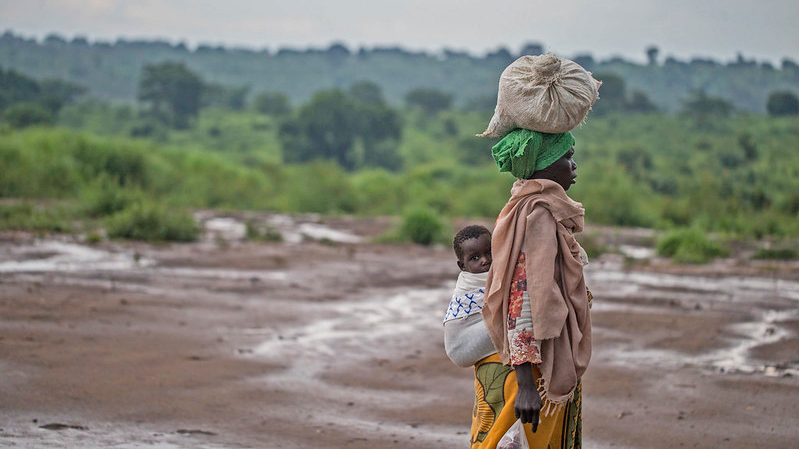Julian Hopwood reflects in this 2 part series blog on matters of evidence in both the Ugandan justice system and in popular understandings of witchcraft.
In March this year I went to a workshop in Kampala on witchcraft and security. One of the most intriguing things about the meeting was that it included some participants and contributors who, at a personal level, experienced witchcraft as absolutely unreal, and others who regarded it as undoubtedly factual. What I found strange was that this did not emerge in the course of our discussions, but was rather something I was only aware of through past personal communications with some of those present. It would not seem strange for atheists and believers to debate Christian theology but somehow one would expect their positions to emerge. It is complicated – the unbelievers are perhaps struggling, as good ethnographers, to suspend their disbelief, while believers are maybe aware of this and resent the implied patronage (though many other dynamics may also be at play). The resulting discomfort was comparable to those social occasions where an atheist (me) is accepting hospitality from people with fundamentalist religious beliefs – or (I guess) vice versa. Good manners demand suppression of ones views in ways they do not in most academic situations.
The day was kicked off by Peter Geschiere, author of works including The Modernity of Witchcraft and Witchcraft, Intimacy and Trust. His talk included discussion of the problems of the subject in relation to what one might call the Othering of Africa. He described how in his doctoral research in Cameroon in the 1970s, he had originally planned to work on African local politics but found instead that witchcraft was a much more vibrant and consuming interest in the community he was based in. His concern was to address the issue without contributing to what one might call the exoticisation of Africa. His subsequent work has sought to show how witchcraft is both a thoroughly contemporary and fast evolving matter, as well as far from unique to Africa.
Since then I have been pondering Othering. In anthropological and psychoanalytic theory it is often a complex idea, but I am thinking simply about the tendency for Westerners to try to ‘understand’ Africans through focussing on difference and using that difference to generate emotional distance, to make alien. In Gulu in northern Uganda where I have lived for some years now, this plays out in various ways. Gulu is very accessible to outsiders in the sense that we have many home comforts – pizza delivery, just-about-adequate broadband, friendly and hospitable local English-speakers and a largely secure environment for anyone with even as much money as a poor Western student. Consequently it has long been a popular place for people to come to study issues connected to that most exotic of African happenings, the Lord’s Resistance Army (LRA) war: where a bizarre cult led by a wizard waged a hideously brutal war for 20 years against both civilians and a powerful state army using kidnapped children as its troops.

In many ways the war remains fascinating, and despite the massive extent to which it has been researched there is still much to learn, in particular about and from the world’s humanitarian response. This is the theme of the LSE’s Trajectories of Displacement project. The LRA conflict generated one of the world’s most comprehensive and long-term displacements of a whole population, and the international response to it, and to the process of return when the war ended, has implications for humanitarian interventions everywhere. On-going research projects under the grant include asking why reintegration of former combatants and children born in captivity often failed, why stigmatisation of former LRA persists, and how recruitment of LRA into the government army has played out. Just starting are projects examining the legacy of post-conflict international interventions on justice systems (including Transitional Justice), on psychological damage and injury, on poverty, on land conflict, on community reconciliation and more.
The research is perhaps underpinned by a perception that there are useful, indeed essential, ways of understanding difference as well as problematic ones. ‘Off the peg’ international humanitarianism in a globalised neo-liberal world works on assumptions of sameness: that, to use an actual example, a UN programme assisting female headed households through agricultural education in Sri Lanka can work in pretty much exactly the same way in northern Uganda. There are economists who regard this as self-evident, and anthropologists who find it simply wrong; the Trajectories of Displacement project hopes to add some empirical if largely ethnographic grist to such arguments.
In the example above, in the particular Ugandan cultural and linguistic context where the project was to be implemented, the concept of a female head of household indicates not the intended vulnerable young women struggling to raise their children alone, but powerful matriarchs of large extended families. Very few people under 50 here remain single for long, but the presence of a man in the family may be an asset or a liability depending on factors such as whether they are traditionally married, whether he has other wives, whether he is the father of all the children, and whether he has and provides access to land for subsistence.
Notwithstanding such examples of the need to champion the significance of cultural differences in designing humanitarian interventions, the notion remains problematic. Northern Uganda is a good place to observe this. In the part of Gulu where I live, bad things happen that don’t, typically, in the UK. People die at a phenomenal rate from murder, road accidents, disease and even hunger; there is a lot of witchcraft and fear of witchcraft; there are grotesque manifestations of corruption in public services – especially the justice, law and order sector, from which, in the local idiom, one may ‘buy law’; there have been at least two lynchings of thieves in my parish of a few thousand people in the last year. But these may or may not be manifestations of culture – rather it might be poverty and circumstances: if you took away the rule of law, all public services and most of the economy from, say, Surrey, you might well observe some or all of these sorts of things there as well. I have neighbours who survive, just, through the labour of small children and from gathering wild plants. Healthcare and schooling are out of the question. The risk of one’s children or oneself dying from easily treatable malaria is very high. This is not a dramatic event – you don’t see mass starvation in the form of skeletal bodies. Rather it is that a great many people die through malnutrition and poverty-induced vulnerability in childhood and young adulthood.
So whatever else it may have done, the international post-conflict intervention in northern Uganda has not eliminated widespread extreme poverty. It has not, as considered in the notion of biopolitics put forward by Michel Foucault and advanced by Tania Murray Li, made live, rather than let die. We hope our research will throw light on whether interventions could have been done more effectively or the money spent better.
Find out more about the Politics of Return and our Trajectories of Displacement research projects, which are based at the Firoz Lalji Centre for Africa and funded by ESRC/AHRC.
Julian Hopwood has been based in Northern Uganda since 2006, and currently works on or provides support to a number of FLCA projects taking place there.
The views expressed in this post are those of the author and in no way reflect those of the Africa at LSE blog, the Firoz Lalji Centre for Africa or the London School of Economics and Political Science.





